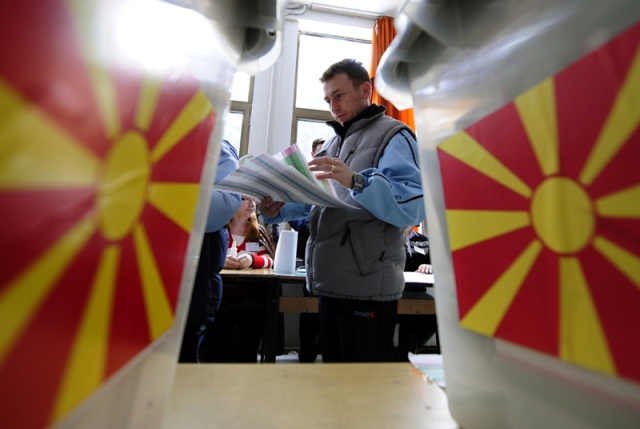Macedonia took a big step toward further inter-ethnic divisions with the presidential election this weekend. The results looked bad and divisive outright, and further reviews of the voting patterns only underline how deep the gap is.
Stevo Pendarovski won the elections with 436.122 votes, against 377.713 for Gordana Siljanovska – Davkova, for a difference of nearly 60.000 votes. It is estimated that at least 80.000 of those votes came from ethnic Albanians, who voted as one. Siljanovska’s votes in Albanian districts often numbered barely a dozen, against thousands for Pendarovski.
Seen from the point of view of the Macedonian community, it faces having a Government, and now a President, elected by a minority of ethnic Macedonians and then by putting nearly all ethnic minorities behind it. The majority of ethnic Macedonians are no longer represented in the executive, even by the relatively symbolic office of the President.
VMRO managed to advance a lot since its disastrous showing in the 2017 municipal elections, when it won only 330.000 votes. In the meantime, the party suffered from constant negative propaganda aimed against it, hundreds of arrests and criminal charges aimed at its leadership as well as the ordinary activists, and strong international pressure to get it to agree to the imposed name change. And still it was able to grow its numbers significantly, including in some of the most fickle districts, and nearly alone won a significant majority of municipalities across the country. SDSM was only able to compete in areas with significant ethnic minority communities.
But, the hard work to bring voters to its side in extremely difficult conditions was overturned by the ethnic Albanian vote which, to Macedonians, appears far from a free and democratic expression of the will of individual citizens.
Macedonians are now wary of what further concessions with Macedonian national interests will Zaev make to placate his Albanian voting base. On the other hand, Albanian appetites have grown. The Tirana platform which Albanian parties presented after the 2016 elections has many open – ended issues which will guarantee that inter-ethnic relations will continue to be at the heart of the power struggle in the country.




Comments are closed for this post.